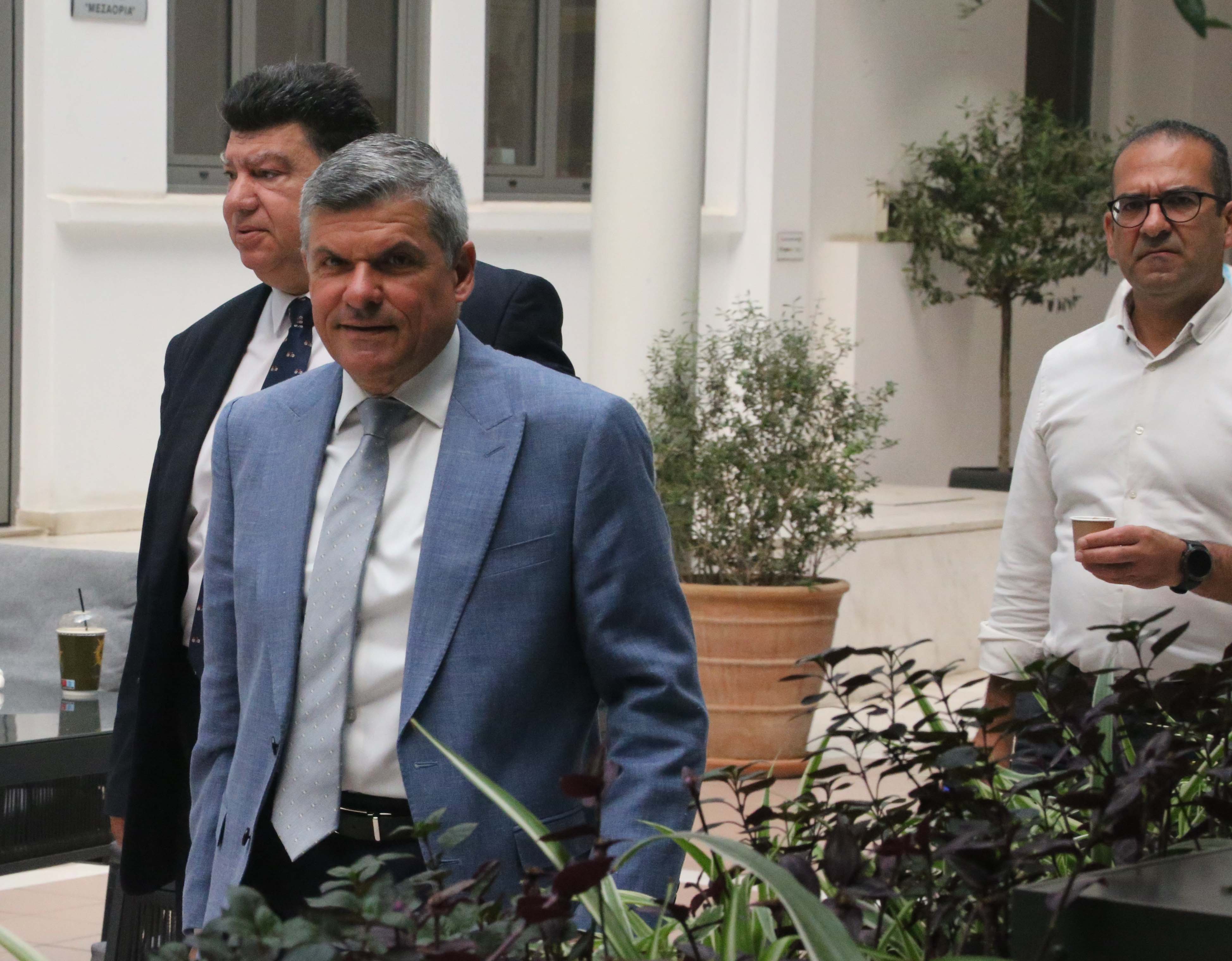Energy Minister George Papanastasiou on Tuesday said there was no justification for any increase in fuel prices despite the present geopolitical upheaval in the Middle East.
Speaking after the conclusion of the day’s House energy committee meeting, he said that countries which produce crude oil are “continuing to produce at the rate they were producing”.
“Demand remains where it is, so any increase is not justified when there is geopolitical turmoil,” he said.
“In geopolitical turmoil, the psychology of traders raises prices, and it is always temporary.”
He added the government is not expecting large-scale price increases “like those which occurred during the Gulf War” in 1990, because the world is much less dependant on fossil fuel than it was at that time.
He said that oil production had also “dispersed” from the Middle East in the intervening 35 years, with countries outside the region now producing oil at higher rates than in the past.
“I do not expect that a conflict which is limited to the Middle East region will result in a permanent increase in fossil fuel prices.”
Despite this, he said the government is “realistic” and “concerned” about potential price spikes should the geopolitical situation in the Middle East deteriorate further.
“In addition to monitoring what is happening in our region and how international fuel prices are evolving, we are also making moves which essentially offer an environment in the local environment which will be maintained at reasonable levels,” he said.
Nonetheless, he said there may be “sharp” but “temporary” increases in prices, but that he expects prices to then return to “normal levels” in due course.
Asked whether the government would consider implementing price controls on fuel, he said that at present, “we do not have a specific price in mind in the sense of a ceiling”.
“We monitor import prices, that is, the invoices paid by traders compared to the prices they place on the pumps at their petrol stations,” he said, adding that if “something is detected”, the government can “intervene”.
This intervention, he said, may constitute “communication” with a company or a legal intervention on the part of the government.
“Price controls are not an end in and of themselves. Free markets work on the basis of profitability, which allows traders to trade freely, but if we see strange movements which are not justified, we will not hesitate to intervene,” he said.
His comments come as Iran continues to mull blockading the Strait of Hormuz, a chokepoint between the most northerly point of Oman and Iran’s southern coast, which provides the only seaborne access between the Persian Gulf and the open ocean, with the conflict ongoing.
The country’s parliament had voted unanimously in favour of the country blockading the strait in retaliation to the United States’ bombing of nuclear facilities in the country over the weekend, though the strait thus far remains open.
News website Euronews wrote last week that around 20 per cent of global oil passes through the Strait of Hormuz, including European imports from Saudi Arabia, Qatar and the United Arab Emirates.
As such, if the strait were to be closed, energy prices would spike, and Europe could face energy shortages.
On Monday, Shipping Deputy Minister Marina Hadjimanolis had warned of “global implications” if Iran blockades the strait.
“The developments are rapid and without a doubt very worrying, with global implications. A possible closure of the Strait of Hormuz, one of the most important strategic routes for international energy trade, will undoubtedly have ripple and immediate effects,” she said.
At the conflict’s outset earlier this month, the energy ministry had called on oil traders to demonstrate the “maximum responsibility”.
The ministry said that if companies in Cyprus attempt to sell fuel at prices which are “not justified” by global price increases, the consumer protection service will “immediately recommend to the minister that measures be adopted”.






Click here to change your cookie preferences